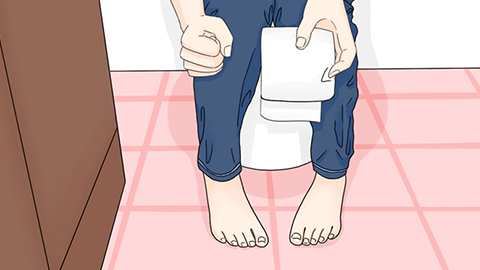What are the main symptoms of anal fissure?
The main symptoms of anal fissures generally include severe pain during defecation, persistent pain after bowel movements, small amounts of blood on the stool surface, itching and discomfort around the anus, and worsening difficulty in defecation. A detailed analysis is as follows:

1. Severe pain during defecation: During bowel movements, dry feces rubbing against the anal fissure wound stimulate nerve endings around the anus, causing intense pain, often described as a cutting or burning sensation. The pain may temporarily subside after stool passage but tends to recur with each subsequent bowel movement.
2. Persistent pain after defecation: After bowel movements, the anal sphincter muscle may spasm due to irritation from the wound, leading to a recurrence of pain. This pain can last from several minutes to hours and, in severe cases, may interfere with daily activities such as sitting or walking. Pain gradually eases only after the sphincter muscle becomes fatigued and relaxes.
3. Small amount of blood on the stool surface: Minor blood vessels in the fissure wound are easily damaged during defecation, resulting in slight bleeding. Blood typically appears as bright red streaks on the stool surface or spots on toilet paper. Significant dripping or mixing of blood with stool is uncommon.
4. Itching and discomfort around the anus: The anal fissure wound may secrete a small amount of exudate, which over time irritates the perianal skin, potentially causing local inflammation and itching. Frequent scratching can further damage the skin and even lead to secondary infection.
5. Worsening defecation difficulty: Due to fear of severe pain during bowel movements, patients may deliberately delay defecation, prolonging stool retention in the intestine. This leads to excessive water absorption, making stools drier and harder. Subsequent bowel movements then cause further injury to the wound, creating a vicious cycle of "pain-constipation-more pain."
Once the above symptoms of anal fissure appear, it is important to adjust the diet promptly by consuming more fiber-rich foods to maintain soft and smooth bowel movements. If symptoms persist for more than one week without improvement, timely medical consultation is recommended to prevent progression to chronic anal fissure.




